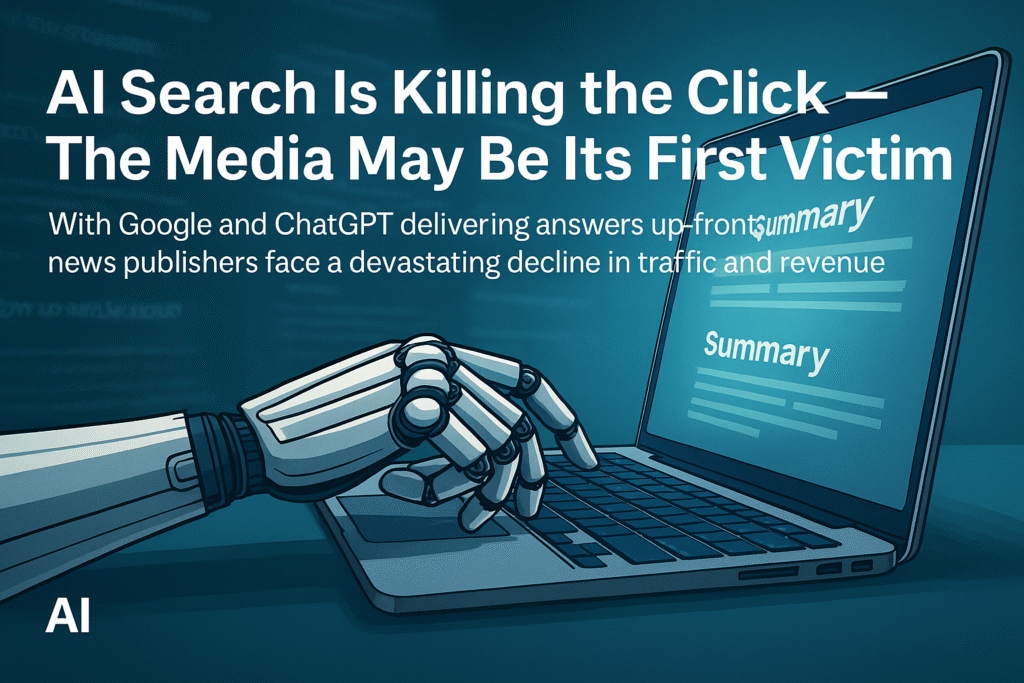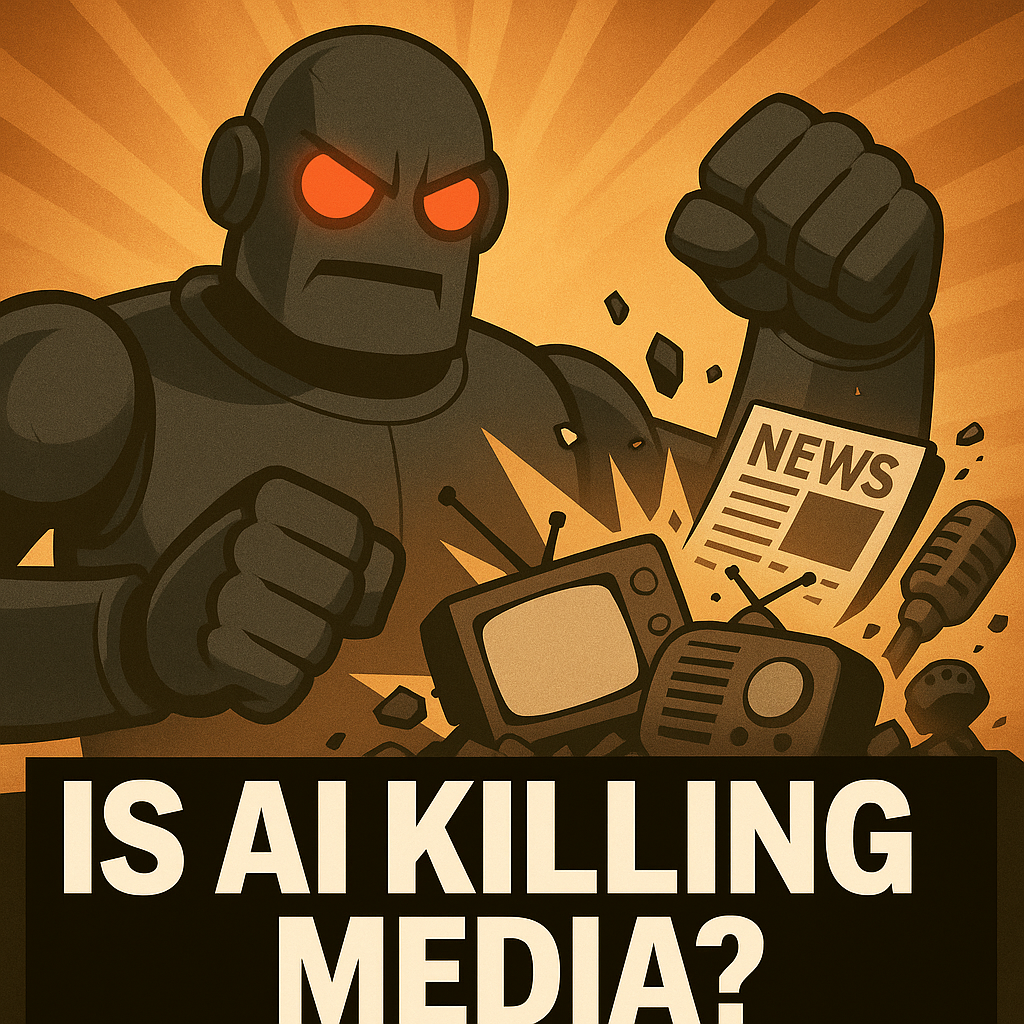With Google and ChatGPT delivering answers up front, news publishers face a devastating decline in traffic and revenue. Is this the beginning of the end for traditional media?

In the battle between technology and journalism, it seems the scales have tipped—again. The rise of AI-generated search summaries, particularly from platforms like Google Search’s new AI Overviews and ChatGPT, is rapidly undercutting an already fragile media ecosystem.
Where once a user searched a query and clicked through to multiple trusted sites for deeper understanding, AI now delivers condensed summaries instantly—often without citing the original sources or prompting any further action. The impact? A significant drop in clicks, traffic, and ultimately, the advertising revenue that sustains much of the online news industry.
“Why Click Anymore?”
When AI-generated answers appear at the top of a search page, research shows that users are half as likely to click on a link compared to traditional results. For media outlets, this is catastrophic. Already burdened by shrinking ad revenues and subscription fatigue, the loss of even a fraction of search traffic can mean the difference between survival and shutdown.
As John Wihbey, a professor at Northeastern University, warns:
“These trends will accelerate, and pretty soon we will have an entirely different web.”
Indeed, it’s not just about losing clicks—it’s about losing discoverability, credibility, and a direct relationship with the reader.
Who Controls the Narrative?
With AI bots generating content from news articles and summarizing without proper credit, publishers are fighting a battle on multiple fronts:
- Google rolls out AI Overviews on millions of queries
- OpenAI and Microsoft integrate web summaries into Bing and ChatGPT
- Meta is reportedly building AI chatbots to replace traditional search
None of these platforms compensate publishers fairly for the content they are scraping.
The Economics of Collapse
The advertising revenue model of media has long been strained, but AI may be its final blow. As search queries are answered without visits, impressions decline, and with it, CPMs (cost-per-thousand-views). A site that once earned $1,000 per day from ad traffic may now struggle to bring in $300.
In response, publishers are being forced to:
- Implement paywalls
- Cut staff
- Reduce investigative journalism budgets
- Depend more heavily on platforms like Substack and Patreon
But even subscription models face the AI threat. Why pay when ChatGPT can summarize The New York Times?
What Experts Are Saying
🔹 Jeff Jarvis, author and journalism professor:
“We are being displaced from our own content. Platforms use our work to train their models, and we get none of the benefit.”
🔹 Emily Bell, director at Columbia’s Tow Center for Digital Journalism:
“AI shifts the power dynamics even more in favor of tech giants. The threat to journalism is not hypothetical—it’s happening in real time.”
🔹 Tristan Harris, of the Center for Humane Technology:
“AI doesn’t just amplify misinformation. It’s also re-routing where attention goes—and that’s money disappearing from truth-tellers.”
These statements reflect the broader fear: AI isn’t just neutral—it’s restructuring the digital economy.

A Call for Action
Some countries are beginning to act. Canada and the EU are exploring link taxes and mandatory AI licensing fees for content scraping. Media coalitions are forming to demand fair compensation, and there’s growing pressure on Google and OpenAI to include publishers in monetization models.
But the road ahead is steep. With AI tools becoming default on devices and in browsers, reversing this trend will take more than regulation—it will require reimagining the role of journalism in an AI-first world.
The New Web: Curated by Bots
If these trends continue, the web will evolve into a landscape dominated by AI-curated content, much of it sourced from journalists who receive no credit. The risk isn’t just financial—it’s existential. Without funding, news dies. And without news, democracy suffers.
Conclusion
AI-powered search may be helping users find answers faster, but it’s also dismantling the very structure that creates those answers. The media industry, already on life support, now faces an algorithmic surgeon with no regard for survival.
If we don’t find a way to align AI with the needs of journalism, the future of the internet may be a lonely one—full of summaries, but devoid of truth.